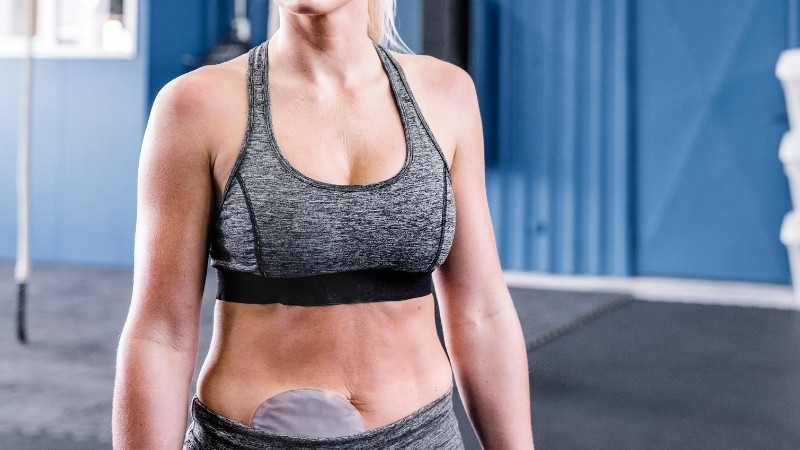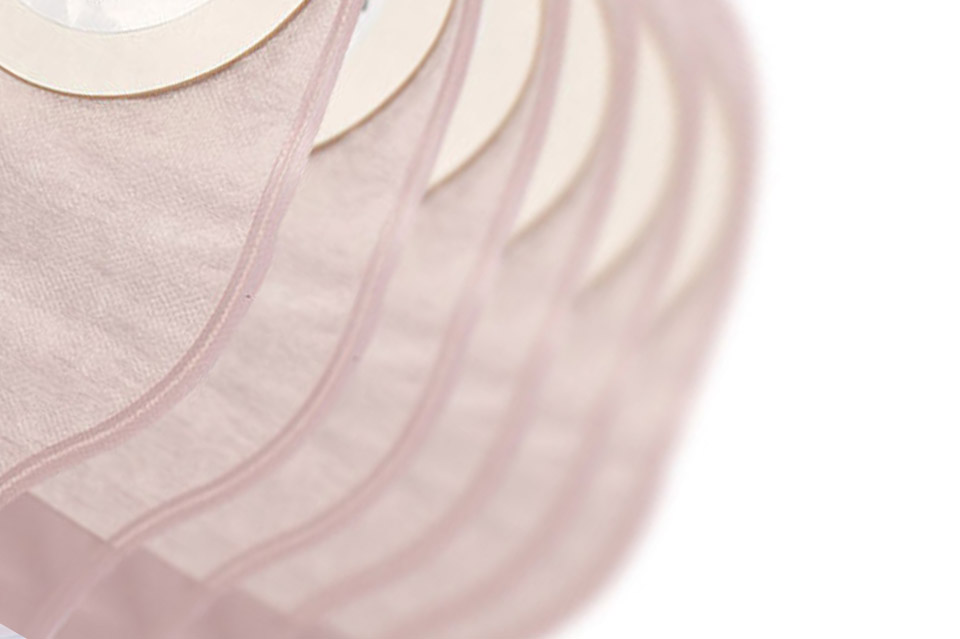If you have a stoma, diet and exercise are just as important as ever. You may have to make some adjustments to the way you exercise with a stoma, what you eat and drink and how you stay active. But on the whole, being an ‘active ostomate’ can have a positive impact on your overall health.
Diet and your stoma
What you can eat and drink with a stoma can often be very confusing. Immediately after surgery, you may be advised to stick to a low residue diet to allow the bowel to recover. After that time you can start to introduce your normal foods back into your diet.
What foods can you eat when you have a stoma?
Consider these 5 things when you do plan your meals:
- Some people may be advised to avoid eating very fibrous foods or foods with tough outer skins such as sweetcorn, popcorn, peas and potato skins to avoid causing a blockage in the bowel.
- Avoid fizzy drinks if you produce a lot of gas.
- Different foods affect people differently, it is completely individual, whether you have an ostomy or not.
- It is worth trying a small amount of any food to see how you react.
- Try not to restrict your range of food.
For many having an ostomy has helped relieve painful bowel symptoms and allows you to go back to eating a normal, healthy diet. You’ll find more detailed information below.
Exercise and your stoma
Finding a way to enjoy exercise through an activity that suits your body is important. It can be very stressful living with, and dealing with life with a stoma without the added pressure of knowing you should be getting some exercise. But any movement counts – exercise isn’t just running, cycling or gym classes. It can be a slow walk through nature, some simple yoga in some comfortable clothes, light weights in front of the TV or simply stretching out your muscles in the morning each day.
You may hear some people tell you that you shouldn’t exercise whilst you have a stoma but this isn’t true at all. Be sure to follow advice from your healthcare specialist and consider the following advice.
Can you exercise with a stoma?
Yes, you can – but before you start consider the following points:
- Seek advice from your healthcare specialist to ensure you choose the right activity for your current level of health.
- It is best to avoid any heavy lifting or exercise for the first 12 weeks after surgery or until your colorectal specialist tells you that it is safe to do so, however after that time being an ‘active ostomate’ can have a positive impact on your overall health as it does for everybody.
- It is important to start off slowly, try 30 minutes of walking a day and build from there.
- The Colostomy Association offers some good advice on being active with an ostomy.
- Pilates and Yoga are also good forms of exercise and they can help to build core strength (build up the abdominal muscles). Make sure that you wear a support band or belt around your stoma to avoid developing a hernia. Your stoma nurse should be able to help you get fitted with one.

Colostomy Diet – Eating and drinking with a colostomy
You should be able to eat a ‘normal’ healthy balanced diet if you still have most of your colon intact and aim to drink around 6-8 glasses of fluid a day (1.5 – 2 litres). You can experience episodes of constipation or diarrhoea with a colostomy and certain food groups are more likely to cause this (see below). If you find that certain foods do cause you any issues, don’t give up, reduce them out of you diet for a short time and then try and reintroduce slowly.
Ileostomy Diet – Eating and drinking with an ileostomy
If you have an ileostomy it is important to drink plenty of fluids to stay well hydrated throughout the day. You can lose some essential minerals and salts from your body and drinking the ‘St Mark’s’ solution/oral rehydration solution, such as dioralyte, can help to replace these. Ileostomies are more prone to blockages so it is important to chew fruits or vegetables with tough skins thoroughly, or you could choose to remove the skins. Not everyone has a problem with this so don’t eliminate fruit and veg from your diet completely.
Symptoms of a blockage
Blockages in the colon or small bowel can happen for a variety of reasons. It can be caused by adhesions/scar tissue, a stricture or narrowing of the bowel, certain foods may cause an issue or constipation. It is a good idea to be able to recognise the symptoms of a blockage, which include:
- Lack of stools
- Extremely watery stools
- Abdominal pain and cramping
- Nausea and/or vomiting
- Bloated stomach
If you have symptoms of a blockage, the advice is to stop eating but continue drinking plenty of fluids to help the blockage pass. If your symptoms persist for more than 12 hours contact your stoma nurse for advice. If you start vomiting and experience severe stomach pain head to your nearest A&E department.
Symptoms of dehydration
Those with an ileostomy or high output colostomy can easily become dehydrated. It is important that you consume enough fluids throughout the day to avoid dehydration. The recommended amount is a minimum of 2 litres but you may need to drink more depending on your output.
The symptoms of dehydration include:
- Infrequent urination
- Dark coloured urine
- Feeling thirsty/ dry mouth
- Dry skin
- headache
Foods that can cause loose stools
- Fruits, vegetables and salads
- Alcohol
- Fizzy drinks
- Chocolate
- Fruit juice
- Fish
- Spicy food
- Nuts
- Caffeine
- High fibre food such as bran
- Foods high in saturated fat/ processed foods/ fast foods
Foods that cause excess odour/gas
- Onions
- Garlic
- Fizzy drinks
- Fish
- Beans and pulses
- Cucumber
- Peas
- Kale, broccoli, cauliflower, sprouts, cabbage
- Alcohol
- Chewing gum
Foods that can help to thicken output
- Jelly babies
- Marshmallows
- Bananas
- Rice
- Pasta
- Mashed potato
- Toast
- Porridge
- Peanut butter
- Apple sauce
Home Delivery Service
Bladder & Bowel Home Delivery service provides all of your urology, ostomy, wound care and prescription medication delivered right to your front door. With FREE Just Can’t Wait Card, Radar Key and Complimentary Items.









